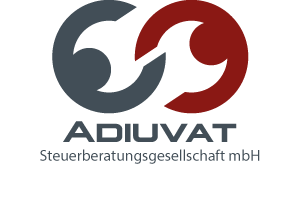“In addition to the wages due in any case …”
Requirements for the tax exemption of wages eased
Many options for paying certain benefits to employees tax-free or for taxing them by means of payroll tax flat rates require that these benefits be “in addition to the wages owed anyway.” According to the previous view, this prerequisite is not met if an earmarked benefit is granted by offsetting it against the wages owed under labor law or by converting it. The Federal Fiscal Court has now changed this view. According to this, “wages owed in any case” are deemed to be wages that the employer pays without using them for a specific purpose. Conversely, additional wages and salaries are any payments made for a specific purpose. It does not matter whether the employee is entitled to the additional pay under labor law. As a result, it is now also possible to reduce cash wages and convert them into tax-exempt benefits or benefits that benefit from lump-sum payments.
Impact of the change in case law
to the following benefits of the employer which are free of wages and social security contributions and which, according to the wording of the law, must be provided “in addition to the wages owed anyway” and for which salary conversion would be possible thereafter:
- Allowances for journeys by public transport on scheduled services and local public transport between home and the first place of work (cf. Section 3 No. 15 EStG),
- Benefits for the accommodation and care of employees’ children who are not of school age in kindergartens or comparable institutions (Section 3 No. 33 EStG),
- Benefits for the prevention and reduction of risks of illness and for the promotion of health in companies within the meaning of §§ 20, 20b SGB V, insofar as they do not exceed (from 2020) 600 euros per calendar year (cf. § 3 No. 34 EStG),
- Services provided to a service company that advises the employee on the care of children or relatives in need of care or arranges caregivers for this purpose (Section 3 No. 34a a EStG),
- Benefits for the short-term care of children who have not yet reached the age of 14 or are disabled, or of relatives of the employee in need of care, if the care is necessary for compelling and work-related reasons, up to 600 euros per calendar year (cf. Section 3 No. 34a letter b EStG),
- Benefits from the provision of a company bicycle (Section 3 No. 37 EStG),
- Benefits from charging a (hybrid) electric vehicle at a facility of the employer and from a company charging device provided for private use (cf. Section 3 No. 46 EStG).
Corresponding meaning
The amended case law applies to the following benefits for which the employer can pay a lump-sum wage tax:
- Transfer free of charge or at a discount
- of data processing equipment; this also applies to accessories and Internet access. The same applies to employer allowances for private Internet use (cf. Section 40 (2) no. 5 EStG),
- a charging device for (hybrid) electric vehicles. The same applies to corresponding subsidies (cf. Section 40 (2) No. 6 EStG),
- Allowances for travel between home and the first place of work (cf. Section 40 (2) sentences 2 and 3 EStG), insofar as these are not already tax-exempt under Section 3 No. 15 EStG (see above).
